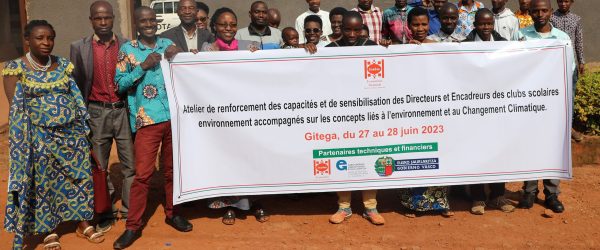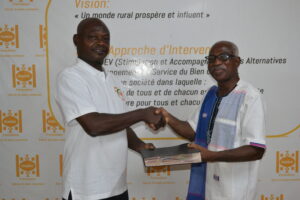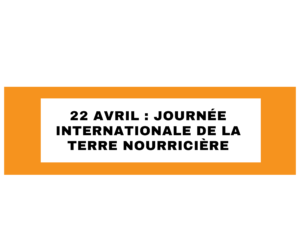“In the center of the country, Inades-Formation Burundi held a seminar for directors and supervisors of school environmental clubs on climate concepts”.
As part of the implementation of the project “Accompagnement à la mise à l’échelle des expériences développées par les communautés et des dynamiques de suivi citoyen des politiques publiques en réponse au problème du changement climatique en Afrique subsaharienne” (ABCD 2 project), Inades-Formation Burundi is carrying out the following activities School-based environmental education project to tackle climate change. With this in mind, from July 27 to 28, 2023, it organized a capacity-building and awareness-raising seminar for the directors and supervisors of six school environmental clubs on concepts linked to the environment and climate change.
Six Ecoles Fondamentales, or ECOFOs for short, took part in the session, namely GIHUGA, RWERU I, GIHEHE and NYAMUGARI in Commune Giheta, Gitega province, and ECOFO NYABISAKA and NYAMUGARI in Commune NDAVA, Mwaro province.
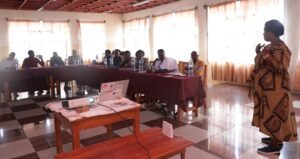
As she kicked off the activities, the project manager, Madame Marie Reine NDORICIMPA, recognized without hesitation that schools are incubators for future environmental decision-makers at different levels of the country. Hence Inades-Formation Burundi’s commitment to this theme, which is compatible with its mission.
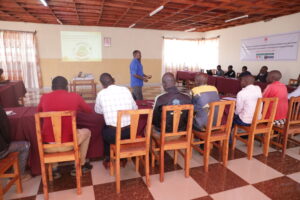
To enhance understanding of this link, Inades-Formation Burundi’s Advocacy and Communication Officer, Richard HAVYARIMANA, gave a brief presentation of the institution and its projects, including environmental education. He took the opportunity to outline current campaigns to mobilize the public to promote agroecology and sustainable food and farming systems.
During this reinforcement, the project manager used a participative method to present the concepts of climate change. Particular emphasis was placed on complementary strategies for coping with climate change, encompassing mitigation to avoid the unmanageable and adaptation to manage the inevitable. This means understanding the causes and signals of climate change. Participants were introduced to the terminology in their role as educators of students in their schools. Other points that attracted the audience’s attention were the notions of exposure, sensitivity and adaptability to hazards. They had to practice in order to quickly understand these concepts and face up to the climate challenges actually present in their communities.
During the seminar, participants planned the next steps for the period from July to December 2023. Obviously, all the schools will start by setting up nurseries to produce seedlings of different species, according to the preferences of each school. They formulated a reasonable timetable to be submitted to the student members of the school clubs for appropriation in line with the ABCD project deadlines.
To make the task easier, Inades-Formation Burundi has designed a “Boite à images”, an adapted environmental education tool.
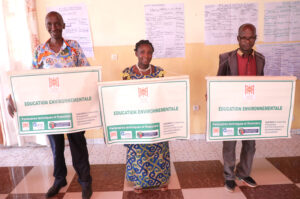
It is based on images directly illustrating the causes or bad practices on the one hand, and the consequences of climate change on the other. What’s more, a series of practices to be developed after awareness has been raised are recorded in this picture box for students. After a session to reinforce participants’ understanding of how to use the tool, each school received a kit consisting of two picture boxes.
On the bangs of the seminar, and before taking the next step, which is to mobilize student members of the clubs on environmental issues, Inades-Formation Burundi then wanted to know the basic level of these beneficiary students on the subject.
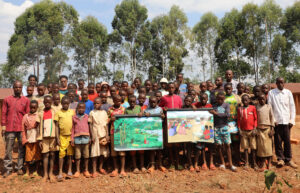
A level test was therefore organized in these schools. This approach is crucial to the choice of the subject to be taught, on the one hand, and the evaluation at the end of the project, on the other, in order to learn lessons about the results or changes achieved.
The ABCD 2 project is being carried out by the Inades-Formation General Secretariat, with financial support from the Basque Agency for Development Cooperation.
Published by Richard HAVYARIMANA
Advocacy and Communication Officer

